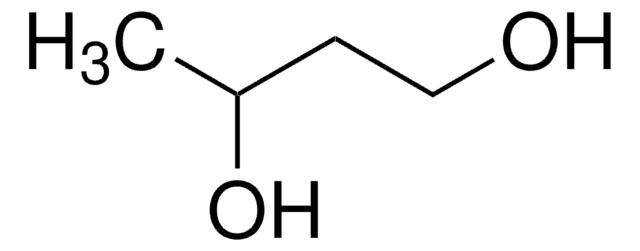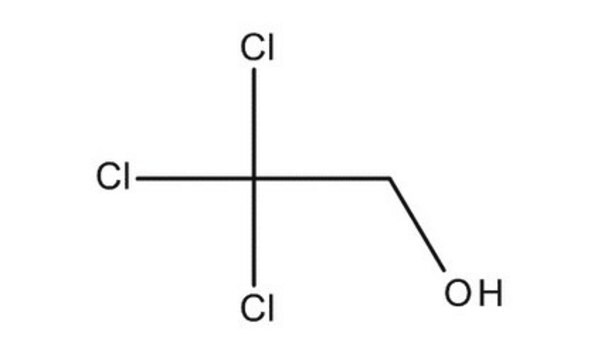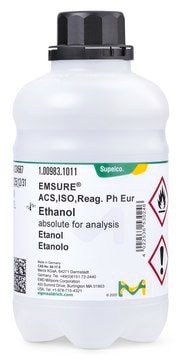1193265
USP
Diethylene glycol
United States Pharmacopeia (USP) Reference Standard
Sinónimos:
2,2′-Oxydiethanol, 2-Hydroxyethyl ether, Bis(2-hydroxyethyl) ether, Diglycol
Seleccione un Tamaño
Seleccione un Tamaño
About This Item
Productos recomendados
vapor density
2.14 (vs air)
vapor pressure
0.01 mmHg ( 20 °C)
API family
diethylene glycol
autoignition temp.
442 °F
expl. lim.
2-12.3 %
manufacturer/tradename
USP
refractive index
n20/D 1.447 (lit.)
bp
245 °C (lit.)
mp
−10 °C (lit.)
density
1.118 g/mL at 25 °C (lit.)
¿Está buscando productos similares? Visita Guía de comparación de productos
General description
Application
- Propylene Glycol
- Glycerin
- Polyoxyl 40 Hydrogenated Castor Oil
- Sorbitol Solution
- Polyethylene Glycol 3350
- Maltitol Solution
- Noncrystallizing Sorbitol Solution
Analysis Note
Other Notes
related product
signalword
Warning
hcodes
Hazard Classifications
Acute Tox. 4 Oral
Storage Class
10 - Combustible liquids
wgk_germany
WGK 1
flash_point_f
280.4 °F - closed cup
flash_point_c
138 °C - closed cup
Elija entre una de las versiones más recientes:
Certificados de análisis (COA)
It looks like we've run into a problem, but you can still download Certificates of Analysis from our Documentos section.
Si necesita más asistencia, póngase en contacto con Atención al cliente
¿Ya tiene este producto?
Encuentre la documentación para los productos que ha comprado recientemente en la Biblioteca de documentos.
Los clientes también vieron
Protocolos
99%; Glycerol, ≥99.5%; Tetraethylene glycol, 99%
Nuestro equipo de científicos tiene experiencia en todas las áreas de investigación: Ciencias de la vida, Ciencia de los materiales, Síntesis química, Cromatografía, Analítica y muchas otras.
Póngase en contacto con el Servicio técnico









